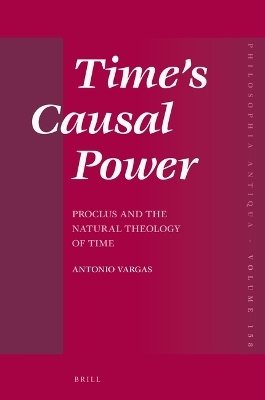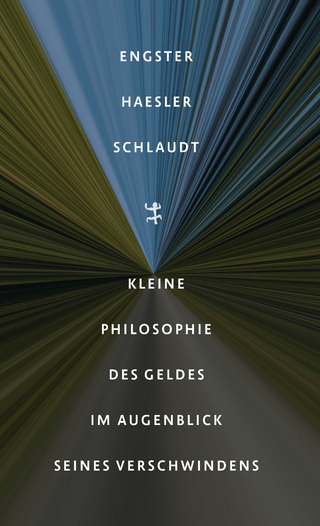
Time’s Causal Power
Brill (Verlag)
978-90-04-46667-8 (ISBN)
This is the first monograph dedicated entirely to Proclus’ theory of time, showing the roots of his obscure claim that time is a god and a cause in his reception of Plato, Aristotle, the Stoics and Plotinus. Proclus’ theory of time appears as a natural theology, a reasoned ascent to divine principles starting from natural phenomena (in particular, from natural cycles and their synchronization). This theological approach to time develops the pioneering psychological approach of Proclus’ predecessor Plotinus, anchoring time not in the world soul, but in the divine unchanging source of the world soul’s life.
Antonio Vargas, Ph.D. (HU Berlin, 2017) is a postdoctoral research fellow at the Martin Buber Society of Fellows in the Humanities and Social Sciences at the Hebrew University of Jerusalem. He has published in Political Theology and Dionysius.
Acknowledgments
Introduction
Scope and Aims of the Book
Distinctive Characteristics of Proclus’ Philosophy of Time
Structure of the Book
1 Sources of Proclus’ Philosophy of Time in Plato
1.1 Plato’s Timaeus as a Source: The Engineering of Time
1.2 Plato’s Republic as a Source: The Cycles of Time
2 The Aristotelian Element: The Order of Time as Number and as Intelligence
2.1 Factors in Proclus’ Reception of Aristotle
2.2 Aristotle on Time as the Number Counted in Change
2.3 Proclus’ Absorption of Aristotle’s Grounding of Change in the Philosophy of Time
2.4 Time as the World’s Specific Kind of Intelligence
3 The Stoic Element: A Biology of the World as a Whole
3.1 Plato and Aristotle on the Omnipresence of Time’s Passage
3.2 The Stoic Biology of the Universe and the Unity of Change
3.3 The Biology of the World in Plotinus’ Theory of Time
3.4 Proclus’ Biology of the World
4 The Plotinian Element: The Flow of Time as the Life of the World Soul
4.1 Platonic Sources and Aristotelian Objections to Time’s Uniform Flow
4.2 Time’s Flow as the Soul’s Engineering of the World in Plotinus
4.3 Time’s Flow as the Contemplative Activity of the World Soul in Proclus
4.4 A Tension in Proclus’ Description of Time’s Flow
Conclusion: The Natural Theology of Time in Proclus
Bibliography
Texts, Abbreviations and Citation Practices
Translations
Modern Scholarship
Index
| Erscheinungsdatum | 30.07.2021 |
|---|---|
| Reihe/Serie | Philosophia Antiqua ; 158 |
| Verlagsort | Leiden |
| Sprache | englisch |
| Maße | 155 x 235 mm |
| Gewicht | 528 g |
| Themenwelt | Geisteswissenschaften ► Philosophie ► Metaphysik / Ontologie |
| Geisteswissenschaften ► Philosophie ► Philosophie Altertum / Antike | |
| ISBN-10 | 90-04-46667-3 / 9004466673 |
| ISBN-13 | 978-90-04-46667-8 / 9789004466678 |
| Zustand | Neuware |
| Haben Sie eine Frage zum Produkt? |
aus dem Bereich


